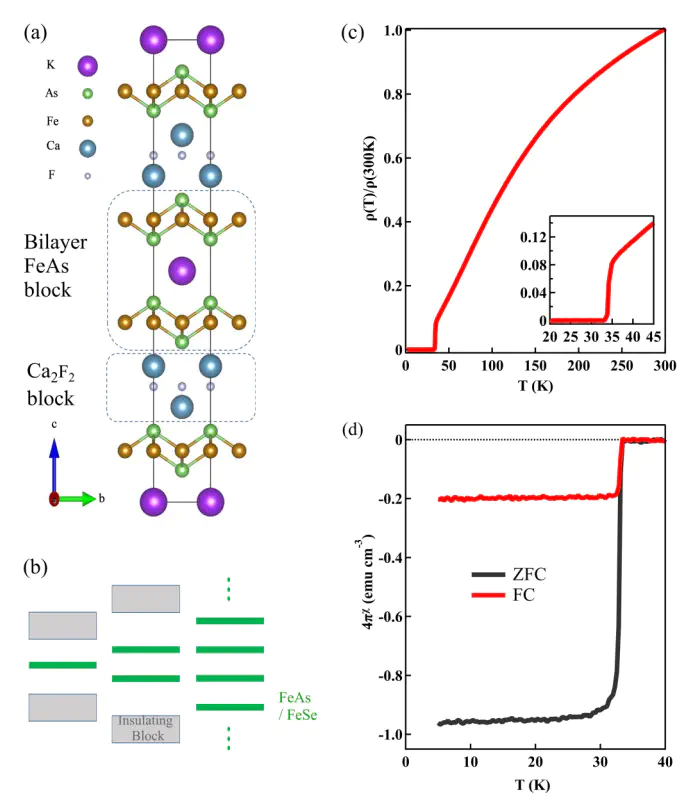Spectroscopic evidence of bilayer splitting and strong interlayer pairing in the superconductor KCa2Fe4As4F2

Abstract
We report high-resolution laser-based angle-resolved photoemission spectroscopy measurements on a newly discovered iron-based superconductor, KCa2Fe4As4F2 (TC = 33.5 K), which consists of stacking FeAs blocks with two FeAs layers separated by insulating Ca2F2 blocks. Bilayer splitting effect is observed for the first time in iron-based superconductors that gives rise to a total of five holelike Fermi surface sheets observed around the Brillouin zone center. Band structure calculations reproduce the observed bilayer splitting by identifying interlayer interorbital interaction between the two FeAs layers within one FeAs block. All the holelike pockets around the zone center exhibit Fermi surface-dependent and nodeless superconducting gap. The gap functions with short-range antiferromagnetic fluctuations are proposed and the gap symmetry can be well understood when the interlayer pairing is considered. The particularly strong interlayer pairing is observed for one of the bands. Our observations provide key information on the role of interlayer coupling and the interlayer pairing in generating superconductivity in iron-based superconductors.